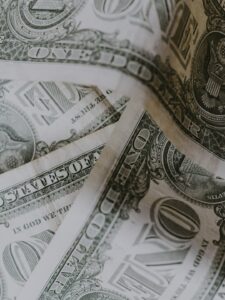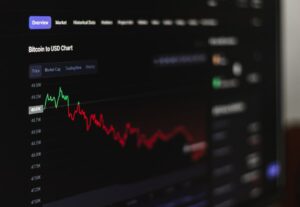The Legalities of Forex Trading: Is it Regulated or a Gray Area?
Forex trading, also known as foreign exchange trading, is the buying and selling of currencies to make a profit. It is the largest and most liquid financial market in the world, with an estimated daily trading volume of around $6.6 trillion. Due to its decentralized nature and potential for high returns, forex trading has gained popularity among investors and traders worldwide. However, the legal status of forex trading varies from country to country, and it can be a confusing and complex topic for those interested in entering the market. In this article, we will explore the legalities of forex trading and determine whether it is regulated or falls into a gray area.
Regulated Forex Trading
In many countries, forex trading is regulated and overseen by governmental or financial regulatory bodies. These regulatory bodies aim to protect investors, maintain market integrity, and prevent fraudulent activities. Examples of well-known regulatory bodies include the Financial Conduct Authority (FCA) in the United Kingdom, the Securities and Exchange Commission (SEC) in the United States, and the Australian Securities and Investments Commission (ASIC) in Australia.
Regulated forex brokers are required to meet certain standards and adhere to specific rules and regulations set by these regulatory bodies. They must obtain licenses, demonstrate financial stability, segregate client funds from their own, and provide transparent pricing and trading conditions. Additionally, regulated brokers are subject to regular audits and inspections to ensure compliance with the regulations.
The benefits of trading with regulated forex brokers include investor protection, access to dispute resolution mechanisms, and the peace of mind that comes with trading within a regulated framework. Regulated brokers are also more likely to provide reliable and efficient trading platforms, as they are held accountable for their actions.
Gray Area of Forex Trading
While forex trading is regulated in many countries, there are also jurisdictions where it falls into a gray area. These are regions where the legal status of forex trading is not clearly defined or where regulations are less strict or nonexistent.
In some cases, forex trading may be allowed, but only through licensed local brokers or with certain restrictions. For example, in India, forex trading is allowed, but only through authorized brokers who offer currency derivatives on recognized exchanges. In other cases, forex trading may be completely prohibited, as is the case in some Islamic countries where trading currencies for speculative purposes is considered against religious principles.
In the gray area of forex trading, individuals may choose to trade with offshore brokers who are not regulated by any specific jurisdiction. While this allows them to bypass strict regulations and access higher leverage and trading conditions, it also exposes them to greater risks. Offshore brokers may not adhere to best practices, and in the event of any disputes or issues, investors may find it difficult to seek legal recourse or protection.
The Risks of Unregulated Forex Trading
Engaging in forex trading with unregulated brokers or in jurisdictions where it falls into a gray area carries significant risks. These risks include:
1. Lack of investor protection: Unregulated brokers are not bound by the same strict regulations as their regulated counterparts. This means that investors may not receive the same level of protection, and their funds may be at risk in the event of broker insolvency or fraud.
2. Inadequate transparency: Unregulated brokers may not provide transparent pricing or trading conditions. They may manipulate prices or execute trades in their favor, leading to unfair practices and potential losses for traders.
3. Limited legal recourse: In the absence of regulations, investors may find it challenging to seek legal recourse in case of disputes or issues with unregulated brokers. This lack of protection can leave traders vulnerable and without any means of resolving conflicts.
4. Money laundering and fraudulent activities: Unregulated forex brokers may attract individuals with malicious intentions, including money laundering and other fraudulent activities. Trading with such brokers puts traders at risk of being unknowingly involved in illegal activities.
Conclusion
Forex trading can be a highly profitable investment opportunity, but it is crucial to understand the legalities surrounding it. While regulated forex trading offers investor protection, transparency, and reliable trading conditions, unregulated or gray area forex trading carries significant risks. Traders must carefully consider the jurisdiction they operate in, the regulatory status of their chosen broker, and the potential risks involved before engaging in forex trading.





